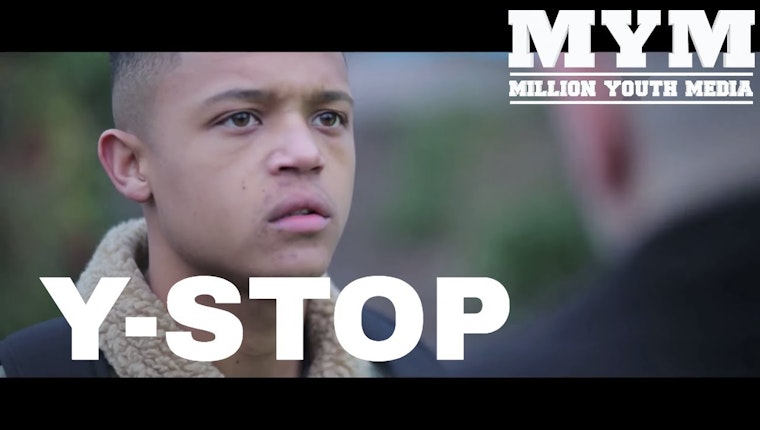A New Film Teaches Youth How to Deal with Stop-and-Search
By Maryanne Olson

Across the world, we’ve watched young people’s street interactions with police degenerate into violence and chaos, leading to community distrust and, occasionally, tragedy. Police reform is key to breaking this cycle, but in addition, young people need tools to help them understand their rights, and tactics to negotiate what is often a scary and complex interaction.
In March, a collaborative of youth-driven organizations in London released Y-Stop, a film (excerpted above) designed to give young Londoners information and training on how to more effectively handle stop-and-search encounters with police.
The film, produced and directed by youth-led media organization Fully Focused, follows three young people in London as they navigate stop-and-search experiences with police on their way to school, jobs, or job interviews. “We felt that the traditional approach to educating young people about stop-and-search needed rethinking, as it just was not translating into improved experiences,” says Natasha Dhumma, stop-and-search coordinator for Release, a UK-based center of expertise on drugs and the law, and the program coordinator on youth for StopWatch, a coalition whose work addresses excessive and disproportionate stop-and-search. “So instead of a know-your-rights approach with a legal focus, we wanted to create something practical and street-smart.”
The film is part of a multiyear initiative called Y-Stop, a comprehensive know-your-rights training program developed by Release in collaboration with StopWatch in 2012. A new peer-learning training curriculum that teaches young people to identify and report poor policing practices, Y-Stop includes an online space launched in December 2014, where youth can safely air frustrations, ask questions, and discuss their interactions with law enforcement in a secure forum.
Young people who wish to file a complaint can fill out a web form and submit it (anonymously if they prefer) to a monitoring team. Release collates these complaints and works with legal advocates to identify which ones are legitimate, then submits those to local police forces for review.
Y-Stop was launched after a study commissioned by the Open Society Foundations found that while the amount of legal information available to young people in the UK is extensive, they nevertheless regularly find themselves unprepared for encounters with the police. Existing know-your-rights training was failing to reach its target audience, and was sometimes inaccurate or out of date.
“Young people feel victimized by police during a stop-and-search, so we developed six key principles they can apply to take a more active role and put them on an equal footing,” says Dhumma. “These are: Stay calm, Eye contact, Ask questions, Receipt/Record, Confidence, Hold to account. They spell out the acronym SEARCH and the film shows how these work in practice.”
Release conducted intensive consultations with 60 young people across London, listening to their experiences with policing and stop-and-search, and discussing what information and tools would help them navigate such interactions. Young people were involved in every aspect of the project: developing the materials, writing the training, choosing the designs, testing the tools, and ultimately even choosing the program’s name and acronym.
The film embodies this collaborative, youth-driven ethos. “The process has been long, but we really believe Y-Stop is stronger as a result of its truly collaborative nature,” says Dhumma. “We believe we have created something that enables young people to be confident when dealing with stop-and-search, but crucially, to do so safely.”
The Y-Stop project was supported by the Open Society Youth Exchange with technical assistance from the Open Society Justice Initiative.
Until September 2015, Maryanne Olson was a program officer with the Youth Exchange of the Open Society Foundations.